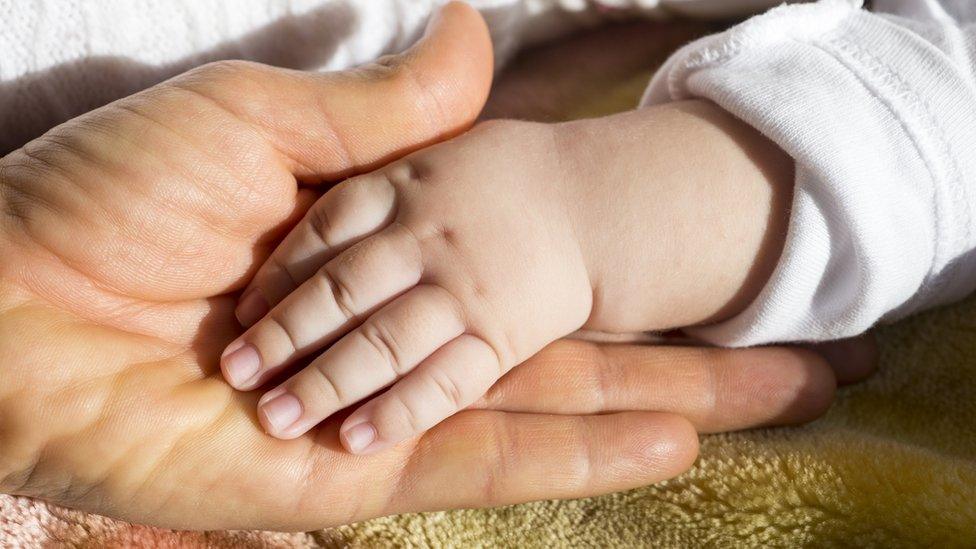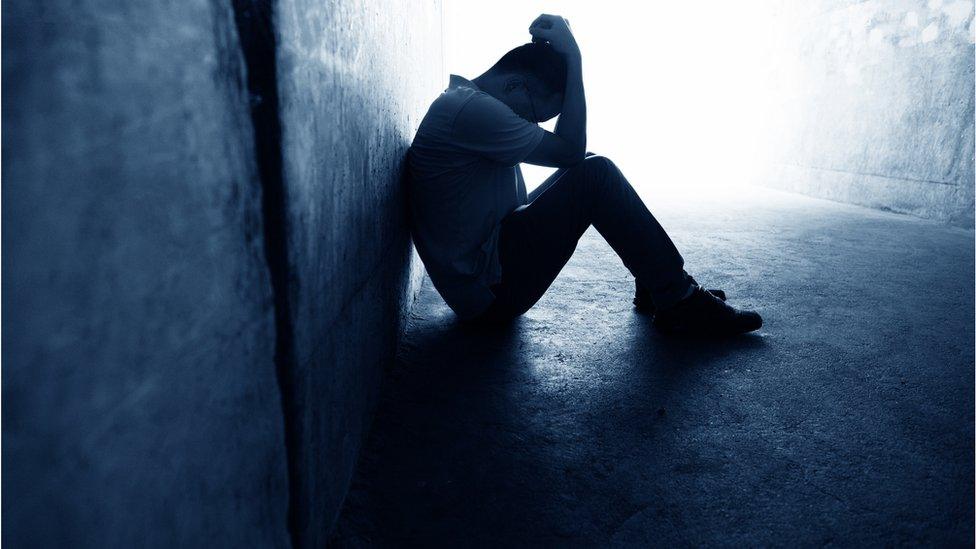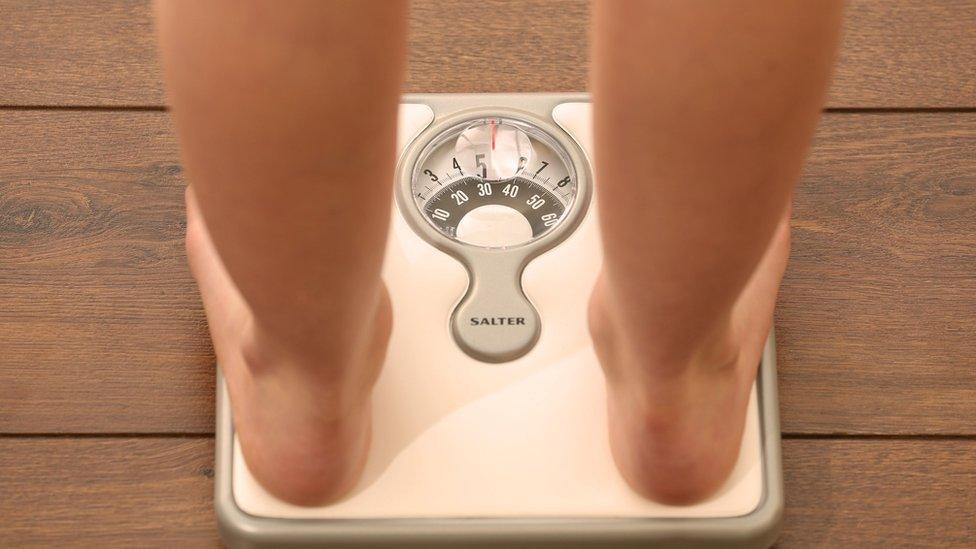Infant mortality rate in NI is the worst in the UK, report finds
- Published

There has been a slight decrease in infant mortality
Northern Ireland's infant mortality rate remains the highest of any UK region but has decreased, according to a new report.
Infant mortality is a measure of deaths of children under one year of age.
The report from the Royal College of Paediatrics and Child Health (RCPCH) shows the current rate is 4.2 deaths per 1,000 live births.
In 2017, the figure stood at 4.8 deaths.
Infant mortality rates decreased in Northern Ireland, Scotland and Wales but remained unchanged in England, which has the second highest rate of 3.9 deaths per 1,000.
The report also highlights an increase in the suicide rate among young people aged 15-24.
Mental health
The child mortality rate, which measures deaths between the ages of one and nine years, has decreased in Northern Ireland to 9.7 per 100,000 from 12.5 in 2017.
The adolescent mortality rate, which looks at deaths occurring between the ages of 10 and 19, has also decreased to 20.5 per 100,000 from 24.4 in 2017.

Northern Ireland still has the highest youth suicide rate
The report found the number of suicides in Northern Ireland's young people aged 15-24 increased to 17.8 deaths per 100,000 from 17.2 in 2017 - the highest rate in the UK.
The suicide rate among people aged 15-24 increased across the UK overall.
The report's other findings include:
Northern Ireland has the second highest number of admissions to Child and Adolescent Mental Health Services (CAMHS), behind Scotland which has an admission rate of 61 per 100,000 people
Northern Ireland was the only UK region to see a decrease in child poverty - it fell one percentage point to 24%
Young people in Northern Ireland consume less alcohol and smoke less than young people in other UK regions
Breastfeeding rates in Northern Ireland have increased
The report also welcomed the re-establishment of the Northern Ireland Executive. which it said provided an opportunity for everyone to refocus attention on children's health.
Responding to the figures, Health Minister Robin Swann said the physical and mental health of children and young people was a "priority" for the executive.
"My department is already investing in a number of programmes and strategies which seek to address child health inequalities and improve the wellbeing of our children."
'Act early'
Dr Ray Nethercott, RCPCH officer for Ireland, said that it had been a struggle to ensure child health was high on the agenda during the three years in which there was no Northern Ireland Executive.
He acknowledged the current healthcare crisis as well as concerns about waiting lists and standard of care but added that "children's health and wellbeing should not be seen as being in competition with adult services or health provision".
"Acting early to treat and prevent conditions, and reducing the impact of factors such as poverty, can really improve health outcomes.
"A healthier population of children and young people will reduce many of the pressures on adult services in the long term."
- Published21 January 2020

- Published6 January 2020

- Published15 June 2017
